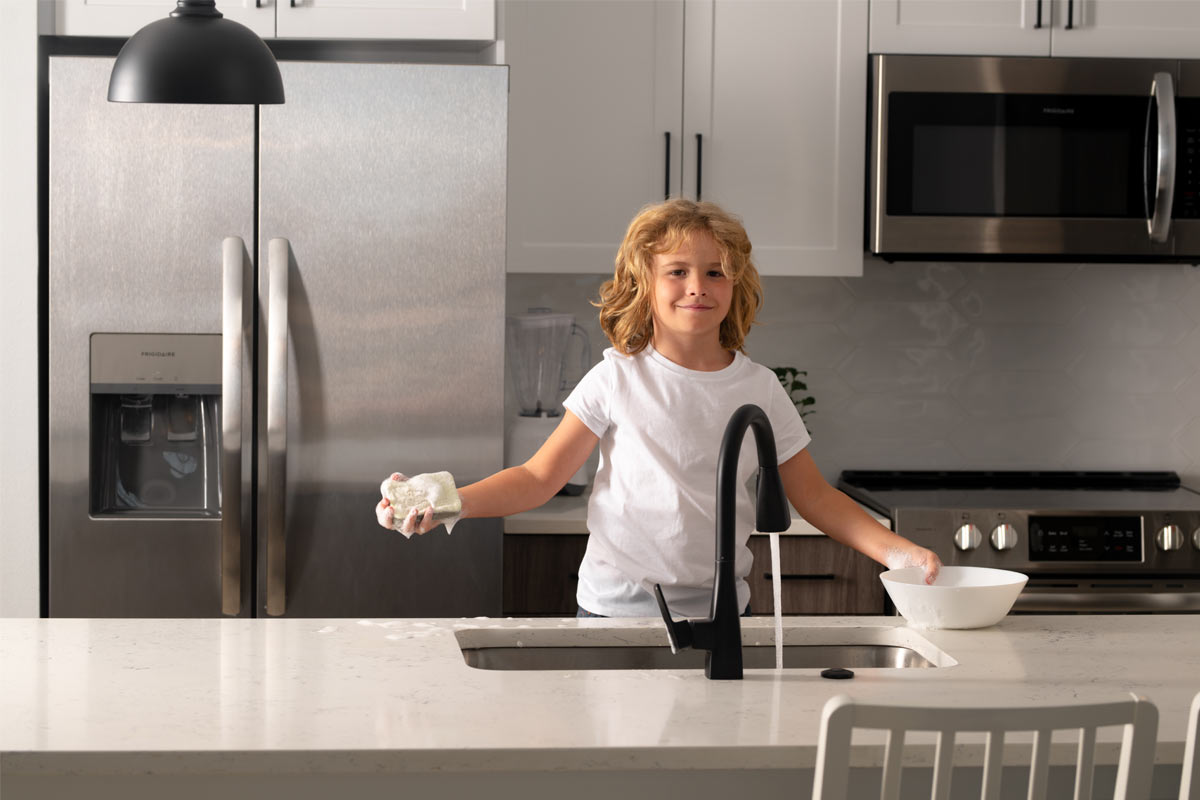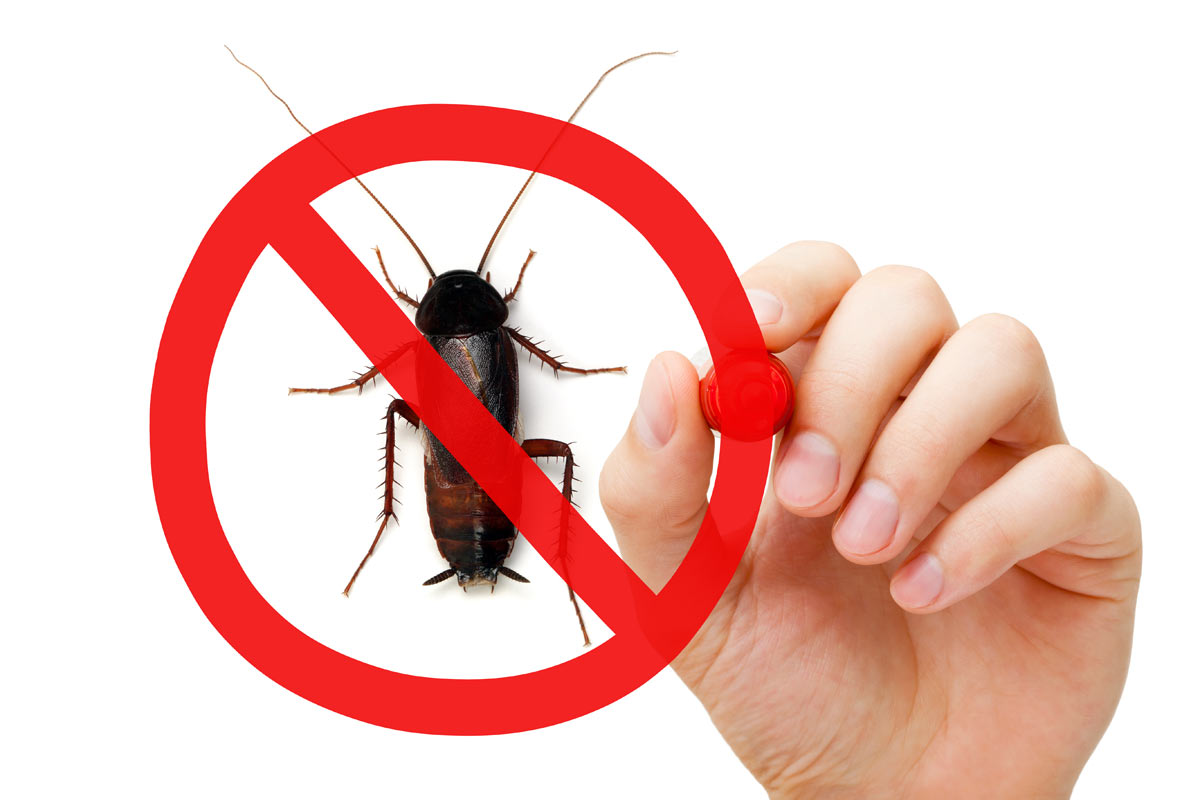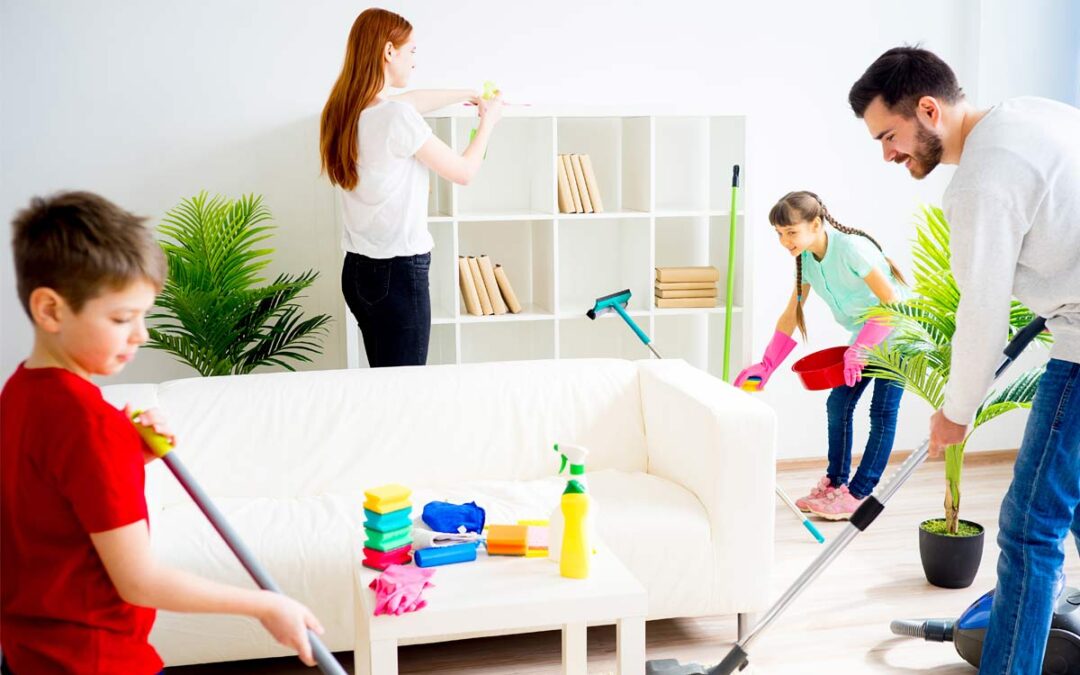Pest control at home is about more than just removing insects or rodents—it’s about prevention and long-term cleanliness. Teaching children and teens how to keep pests away helps build good habits and keeps your home safer. When everyone at home does their part, pest problems become less likely and easier to manage.
Why Kids and Teens Should Be Involved in Pest Prevention
Kids and teens often contribute to the clutter, crumbs, and messes that attract pests. Involving them in daily prevention teaches them responsibility and shows them how their choices affect the home. These lessons also help them stay cleaner and more organized as they grow up.
When kids know how pests get in and what attracts them, they become more mindful of their actions. A dropped snack or a forgotten lunch container might seem small, but over time, these little habits can bring unwanted bugs and rodents inside. With the right guidance, they’ll learn to keep their space tidy and pest-free.
General Pest Control Basics Kids Should Understand
Children don’t need to know everything about pest control, but they should understand the basics. Knowing what pests are, why they show up, and how to avoid them gives kids a better sense of responsibility. It also helps them see how their habits affect the home.
What Pests Are and Why They’re a Problem
Pests include insects like ants, flies, cockroaches, and even animals like mice. These pests can bring in germs, bite people, and damage furniture or walls. When kids understand that pests can make them sick or harm the house, they’re more likely to avoid habits that attract them.
The Connection Between Cleanliness and Pest Prevention
Crumbs, spills, and leftover food invite pests indoors. When children learn to clean up right after eating, they remove the food sources that pests are looking for. They also begin to understand that cleanliness helps keep their rooms healthier.
Safe vs. Unsafe Pest Control Practices
It’s important to show kids which products are off-limits. Sprays, traps, and chemicals should only be handled by adults. Children should always tell an adult if they see bugs and never try to use pest control tools on their own.
Smart Habits to Teach Young Kids (Ages 5–10)

Younger kids may not do full cleaning jobs, but they can help with simple, age-appropriate tasks. With guidance and consistency, they can learn habits that reduce the chance of pests entering the home. Making these tasks part of their daily routine helps them stick.
- Clean-Up After Meals and Snacks
Help them learn to wipe tables and pick up crumbs as soon as they’re done eating. Use easy-to-follow steps like putting plates in the sink, throwing away wrappers, and wiping with a cloth. Young kids enjoy routine, and turning cleanup into a fun daily habit can make a big difference.
- Proper Trash Disposal
Show kids how to throw their garbage into the right bin and keep the lid shut. Explain why trash shouldn’t pile up, especially food waste. Teaching them to empty small bins in their rooms regularly also prevents odours and pests from settling in.
- Keep Toys and Personal Items Off the Floor
Food crumbs often hide between toys on the floor. Encourage kids to pick up their toys and place them in bins or shelves after playtime. Keeping the floor clear makes it easier to clean and leaves fewer places for pests to hide.
Practical Habits for Preteens (Ages 11–13)
Preteens can handle more responsibility, especially with their personal spaces. At this age, they begin eating in their rooms, managing their laundry, and keeping their own spaces. These actions, if not done properly, can bring in pests.
- Food Storage Awareness
Preteens often keep snacks in their rooms or backpacks. Teach them to seal snack bags and avoid leaving open food out overnight. If they’re using food containers, make sure they know how to close lids tightly to keep pests away.
- Recognizing Signs of Pests
Show them how to spot signs like droppings, chewed food packaging, or small insects. If they notice these early, they should tell an adult right away. Early detection helps stop an infestation before it grows.
- Laundry and Clutter Control
Dirty laundry, especially clothes with food stains, can attract pests. Encourage preteens to keep their laundry in a hamper and not on the floor. Also, teach them to clean cluttered corners in their rooms, where bugs might hide.
Responsible Habits for Teens (Ages 14–18)
Teenagers are often busy, and their rooms become their own mini homes. As they gain more independence, they should also take full responsibility for keeping pests out of their space. These skills will also help them manage future living spaces on their own.
- Room Maintenance and Hygiene
Teens should sweep or vacuum their rooms at least once a week. Remind them to clean under their beds and behind furniture where crumbs may collect. Simple changes like using a laundry hamper, storing snacks in sealed containers, and wiping spills can go a long way.
- Helping with Household Pest Prevention Tasks
At this age, they can join in more household tasks like sealing cracks or checking door gaps. These small chores help them understand that prevention is part of home care. It also gives them hands-on experience with basic home maintenance.
- Using Safe, Approved Products with Supervision
Teens can learn to use certain natural repellents or non-toxic traps if an adult supervises. Explain how to read labels and choose safe options. They should know to avoid mixing products or using them near food and pets.
Making Pest Control Education Fun and Age-Appropriate
Teaching pest control doesn’t have to feel like a lecture. Kids of all ages respond better when they’re engaged and having fun. Simple games, checklists, or rewards can make learning more enjoyable.
- Create a Reward System
Rewarding good habits encourages consistency. Use a sticker chart or small incentives when they complete pest-prevention chores. It reinforces their effort and makes the experience positive.
- Turn It Into a Game or Challenge
Create a fun game like a “crumb hunt” to help younger kids find food messes. For older kids, set weekly challenges—who can keep the cleanest room or complete the most chores. These fun elements help them stay interested while building helpful habits.
- Encourage Group Accountability
Let siblings check each other’s rooms or make cleanup a family activity. Older kids can guide younger ones, giving them a sense of leadership. When everyone works together, it builds a shared sense of responsibility.
What to Avoid Teaching Kids About Pest Control
While it’s good to teach responsibility, it’s also important to keep things safe and age-appropriate. Avoid using fear, chemicals, or harsh messages when talking to kids about pests. Focus on education, not scare tactics.
- Avoid Fear-Based Messages
Don’t use scary stories about pests to scare children into cleaning. Fear can lead to anxiety, especially in younger kids. Instead, focus on how being clean keeps them and the home healthy.
- Don’t Rely on Chemical Products as a First Solution
Teach kids that cleaning and preventing messes is the best way to stop pests. Chemicals are not always safe, especially around pets and small children. Let them know it’s always better to ask an adult if they see pests.
- Don’t Ignore Their Efforts
Even if the job isn’t perfect, praise your child’s effort. Feedback helps them improve without feeling discouraged. Encourage them to try again and learn from small mistakes.
How to Support These Habits as a Parent or Guardian
Parents play a big role in reinforcing these habits. By leading by example, providing the right tools, and setting clear expectations, you make pest control easier to understand. It’s about teamwork and consistency.
- Model Good Pest Prevention Behaviour
Let your kids see you wiping spills, sealing containers, and taking out the trash. When you act first, they’re more likely to copy those actions. It shows them these aren’t just chores—they’re part of daily living.
- Provide the Right Tools and Instructions
Give them safe cleaning products and easy steps to follow. For example, have kid-friendly spray bottles or wipes available in the kitchen or playroom. A simple checklist taped to the fridge can remind them what to do each day.
- Set Age-Appropriate Expectations
Younger kids need simple tasks, while teens can handle more responsibility. Let their chores grow with them. Clear expectations help them know what’s needed and avoid confusion.
When to Call a Professional and Why Kids Should Know
Some pest problems are too big for home solutions. Teaching your kids when it’s time to ask for help keeps everyone safe. They should know that professionals have the tools and knowledge to deal with serious infestations.
If they notice a lot of ants, droppings, or something unusual, they should tell an adult right away. Let them watch how a pest control expert checks the house, as long as it’s safe to do so. It helps them understand the difference between daily upkeep and serious issues.
Mr. Pest Control Has Your Back: Safe and Reliable Pest Control in Midland

If your kids are doing their best but pests still show up, it might be time for expert help. Mr. Pest Control offers trusted and family-safe pest control in Midland to help you protect your home. From inspections to treatment, we handle every situation with care and professionalism. Book a visit today and keep your home safe—while letting your kids stay focused on what they do best. Call us at 705-739-7378.



